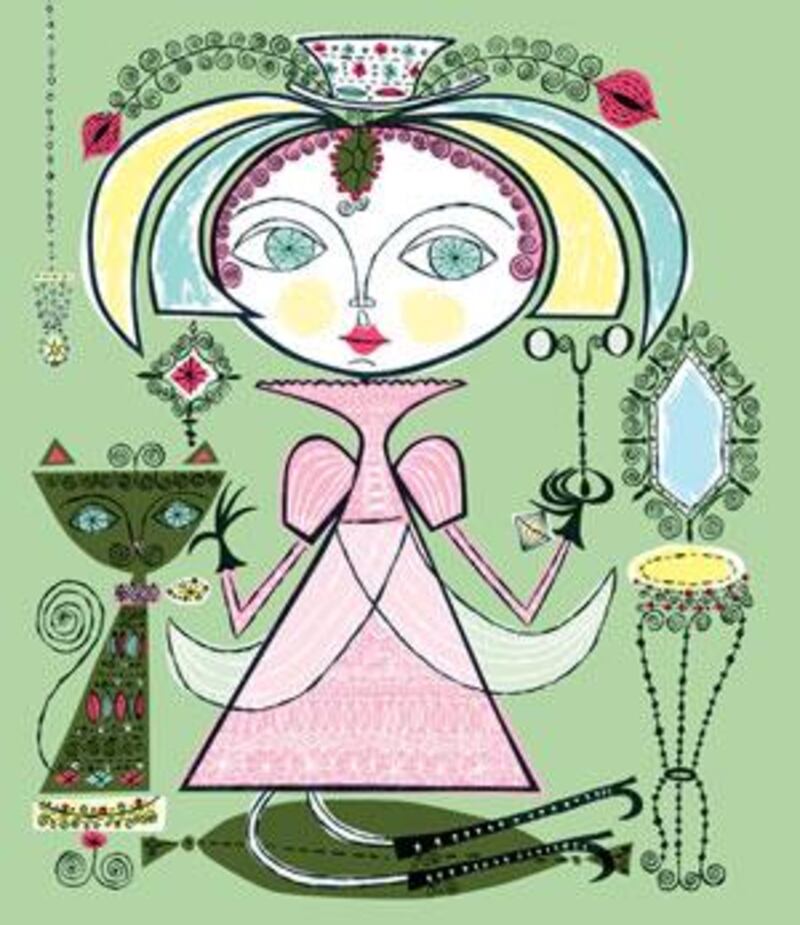Complex and far from arbitrary, good taste is at once a sense, a moral attribute and a matter of aesthetic judgement, which as Ben Barkow explains, can prove a thorny issue. Few concepts in the world of fashion, or art, or literature are as contentious and disputed as that of taste. What is more irritating than having your taste questioned? What more able to bestow a delicious glow of self-satisfaction and complacency than having your taste confirmed?
Taste is a complex amalgam. It is simultaneously one of our five senses, a moral attribute (because the beautiful and the good are necessarily identified) and a matter of aesthetic judgement. Being told that you have bad taste, or are guilty of a lapse of taste, is to be attacked on several fronts at once. First, there is an implication that your faculties are at fault, your senses are not working properly, denying you the ability fully to make sound judgements. Secondly, your sensibilities relating to the arts and to the notion of beauty are being called into question. Finally and most troubling, these failings make you, in some sense, a bad person or at least a person who has a chink in his moral armour.
Is it any wonder that people are prickly when you call their taste into question? So, is taste real? Or is it just a way for hoity-toity fashionistas and literati to keep the trainer-clad, Hello!-reading hoi polloi at bay? Sociologists tell us that taste comprises cultural patterns of choice and preference - but ask yourself this: when contemplating a marvellous creation like Velazquez's Las Meninas or a Givenchy frock, is the sociologist's viewpoint really the relevant one?
Taste is mercurial, although it is far from arbitrary. It is unpredictable but always linked to important aspects of that popularly mispronounced notion, the Zeitgeist. Take Impressionist painting. The name was famously coined to insult a group of painters who broke the academic rules by giving colour primacy over line and contemporary real-life over classical fantasies. When, in 1863, the jury of the Academie des beaux arts in Paris rejected Manet's Le déjeuner sur l'herbe, it was because it depicted a nude in a realistic contemporary setting with two clothed men - a clear infringement of established good taste. The Impressionists were deemed to be technically incompetent and insulting the public with their crass daubs. Yet within a generation the tide began to turn against the academicians. The Impressionists slowly emerged to be recognised as artistic geniuses. Taste had evolved, making dinosaurs of those whose aesthetics stood still.
But having become the hallmark of taste, it was only a matter of time before the forces that brought Impressionism to life turned again. Today, approving of the Impressionists is like approving of apple pie and motherhood. If your taste goes no further, it indicates that you have none. In fact, one of the touchstones of postmodern taste is the appreciation of the tasteless. Partly this has been a reaction to the ubiquity in our lives of violence, horror and outrage, thanks to the media. After all, you cannot turn away from the news reports after they have dumped their daily cargo of atrocity in your brain and produce dainty watercolours or sculpt busts of the great composers. The artworks of Dinos and Jake Chapman may be as idiotic as they are vile, but the underlying artistic response has legitimacy.
More broadly, post-modernity has produced in us a seemingly endless fascination and love of kitsch. Kitsch - a word coined to describe the worthlessly pretentious - is everywhere. In fashion, it's seen in the sort of geeky, gormless styles that one imagines adorned Bill Gates as a youth. Polo shirts and windcheaters, satchels and shapeless woolly hats have been all the rage. The sort of dresses with violently clashing colours, schoolgirl socks that young Bill's inamorata might have worn, set the standard for female fashion. For the time being we are all geeks, although we're starting to become fed up with it and are looking enviously at the incredibly elegant fashions of 1950s and Sixties Hollywood when it was acceptable to be grown-up. In furnishings the admiration of kitsch obliges us to deck our houses and apartments out in 1950s futuristic style. In popular music, we must delight in an "ironic" love of Rick Astley's hit, Never Gonna Give You Up, or Peter Kay's reworking of Show Me The Way To Amarillo.
Yet flirting with kitsch is not without its dangers. Taste, we recall, carries moral implications. Take a look at the taste (grandiose rather than grand, overblown and featuring too much white and gold) expressed by people such as Hitler, Imelda Marcos or the average sub-Saharan dictator. Warning lights should flash. The distance between admiring the aesthetics of, say, Tony Soprano, and aping his methods of conflict resolution is smaller than you might think.
But a retreat into a safe classicism does not resolve the "problem" of taste either. You can't keep writing Jane Austen's novels, no matter how timelessly great the originals may be. Life and literature must move on. Taste is fluid, shifting, responsive to social evolution. It does not belong to one social class. Its arbiters in the 1960s - David Bailey, Twiggy, John Lennon - were conspicuously from humble origins. Good taste is always the result of an authentic engagement with the world, but such an engagement does not guarantee taste.
There is in taste an intangible, ineffable quality. It brings a certain magic into our lives. It leads and teaches us and - I really believe this - can make us better people. The American performer Gilda Radner spoke of her own patterns of cultural preference thus: "I base most of my fashion taste on what doesn't itch." Gilda is surely right. Good taste doesn't bring you out in hives. Good taste is a balm, to the senses and the spirit.





